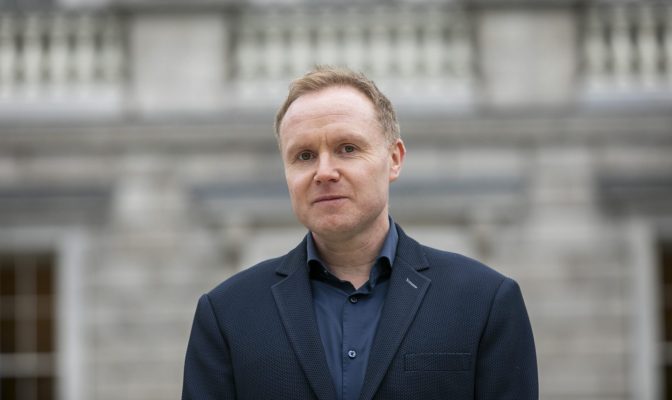Lack of workforce planning and the HSE’s failure to initiate a comprehensive recruitment drive is exacerbating the crisis in primary care services for young people, according to Social Democrats TD Liam Quaide.
Deputy Quaide, who is the party’s spokesperson on mental health and disability, said:
“This government continues to be in denial about the scale of the crisis in primary care services, which provide support to people with mild to moderate mental health difficulties or developmental issues.
“Earlier this year, HSE figures released to me highlighted the dire state of services. As of the end of May, the number of young people nationally waiting for a primary care psychology appointment was 25,745. Of these, 12,440 were waiting over 52 weeks. For occupational therapy, the total was 25,983, of which 1,909 were waiting more than 52 weeks.
“While the HSE initially declined to provide data on the true wait times beyond this ‘+52 weeks’ category, figures I later received showed extreme waiting lists throughout the country and across disciplines.
“For psychology, the longest wait time was in Dublin North-West – a staggering 13.5 years. The longest wait for occupational therapy was over 9.5 years in Dublin North. The longest wait for physiotherapy was seven years in North Lee, Cork.
“I recently submitted a further parliamentary question to Health Minister Jennifer Carroll MacNeill seeking details of a workforce plan and recruitment drive to address this crisis. Disappointingly, the minister’s response gave no such clear commitment and instead emphasised increased training places she is making available for health and social care professions.
“However, these additional training places will not materialise into HSE posts for several years. The crisis in primary care services for young people has been developing across disciplines and throughout health regions for years. As a result, many services are now at breaking point, with waiting lists completely out of control.
“The minister’s response referred to ‘challenges related to recruitment and retention of healthcare professionals’, while failing to mention that the main impediment has been a series of recruitment restrictions imposed by successive governments, including her own.
“The minister doubled down on recruitment restrictions imposed by the government’s Pay and Numbers Strategy, saying that each of the six HSE health regions has ‘a specified number of Whole Time Equivalents (WTE) and can replace, recruit and prioritise staff within that approved number’. This essentially means that HSE managers can only make up the massive shortfalls in primary care disciplines, such as psychology and occupational therapy, by redeploying clinicians from other services – not through the additional recruitment needed to address this crisis.
“The government is in denial that this crisis is happening. In July, the Taoiseach claimed in the Dail that a recruitment embargo had never been applied to these services – an assertion that was met with disbelief by many primary care clinicians whose morale is already at rock bottom.
“The first step in addressing this crisis is acknowledging its existence. Minister Carroll MacNeill must now devise a workforce plan for primary care services and initiate a comprehensive recruitment drive as matter of urgency.”
August 18, 2025

